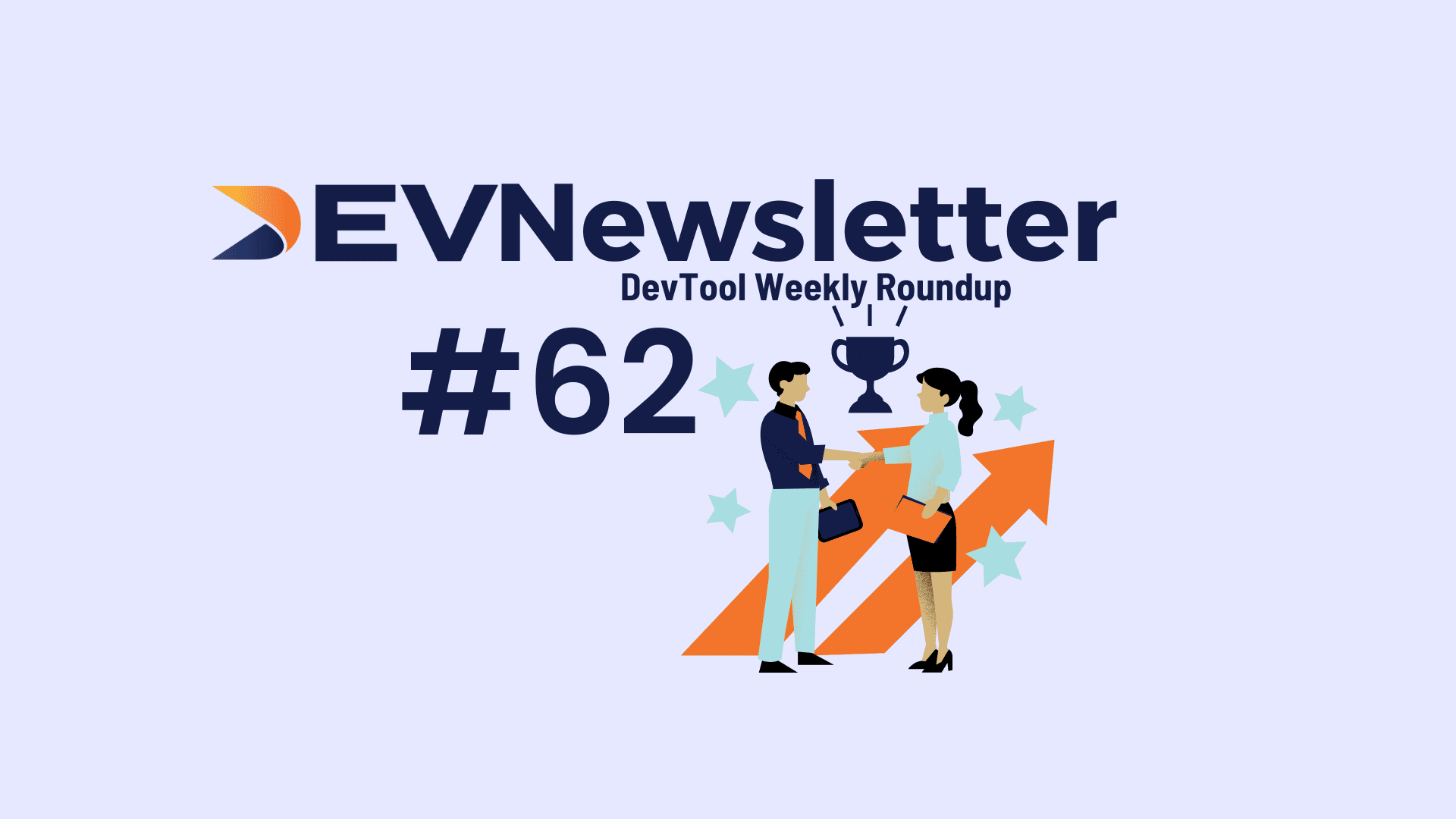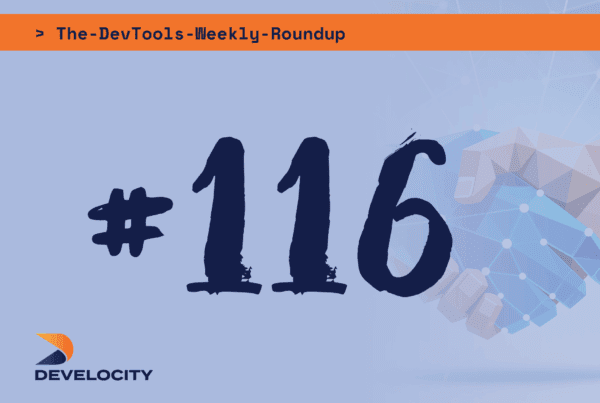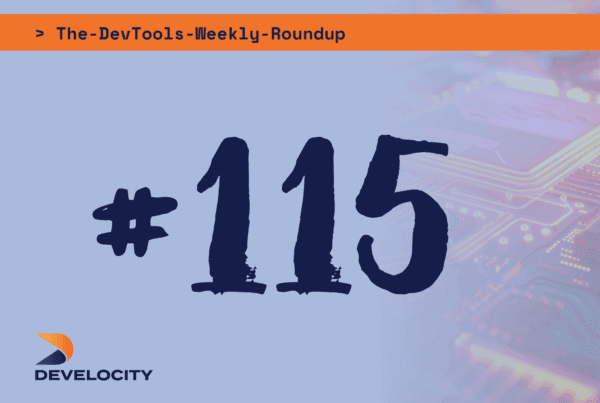This week’s newsletter showcases pivotal developments in the devtools space, driven by innovations in AI, data integration, and cloud security. All driven to achieve: accelerated development, simplified workflows, and enhanced developer experience.
🏆 Funding Wins
Lighting the Way as Lightdash Secures $11M Series A for Self-Serve Data Analytics
Lightdash, the open-source BI platform, has raised an impressive $11M in Series A funding to accelerate its mission of making self-serve data analytics accessible to modern teams. Led by Accel, the funding will support product development and the continued growth of Lightdash’s user base. In addition, Lightdash is launching a new AI analyst service that provides tailored insights for teams like marketing, finance, and HR. Founded by Hamzah Chaudhary and Oliver Laslett, Lightdash integrates with tools like Slack and Google Sheets, empowering non-technical users to explore data independently. “…we want to build self-serve tools that empower data teams to become superheroes,” said Chaudhary.
Read more about Lightdash’s funding round here
Layer Raises $6M to Build Developer Tools for Decentralised Web Applications
US-based Layer has raised $6M in seed funding, led by 1kx, with participation from Fabric Ventures, Arrington Capital, and more. Founded by Sam Cassatt, Jake Hartnell and Ethan Frey, Layer is tackling the challenge of building trustworthy decentralised web applications by using Web Assembly. Their Layer SDK will allow developers to create full-stack blockchain-based apps with smart contracts, decentralised messaging, AI agents, and more. Layer’s tools address the limitations of current smart contract systems, which struggle to handle the demands of modern web experiences.
kapa.ai Collects $3.2M to Enhance AI-powered Technical Assistants
kapa.ai the platform transforming technical documentation into AI-powered assistants, has raised $3.2M in seed funding led by Initialized Capital, with participation from Y Combinator and notable angels like Douwe Kiela (ContextualAI) and Amjad Masad (Replit). Founded by Emil Sorensen and Finn Bauer, kapa.ai helps companies like Docker and OpenAI reduce support ticket volumes by providing instant, accurate answers to technical questions. With over 100 customers, including startups and enterprises, kapa.ai integrates knowledge sources like Slack and GitHub to create self-service AI assistants that improve over time.
Poolside Secures $500M Series B to Lead AI-driven Software Development
San Francisco-based poolside has raised $500M in Series B funding, led by Bain Capital Ventures, alongside NVIDIA, Citi Ventures, and others. Founded by Jason Warner and Eiso Kant, Poolside is advancing AI capabilities for software development with its unique Reinforcement Learning from Code Execution Feedback (RLCEF) approach. Their AI models evolve by processing real-time developer interactions, promising to surpass human-level coding efficiency. This funding will fuel Poolside’s infrastructure expansion, including one of the world’s largest AI training clusters, to meet the security and scalability needs of its enterprise clients.
Read more about Poolside’s funding round
Driver Streamlines Tech Documentation with $8M Seed Funding
Driver , co-founded by Adam Tilton and Daniel Hensley, has raised $8M in seed funding, led by GV, to launch its AI-powered documentation platform. Driver automates the creation of technical documentation, drastically reducing the time engineers spend on manual tasks (by up to 50% in most cases). The platform’s impact is especially significant in industries like semiconductors, where detailed, up-to-date manuals are essential for speeding up product development and reducing errors.
Learn how Driver’s platform is transforming technical documentation for engineering teams.
🚀 3, 2, 1…Launches
Gradio 5 Brings Speed and Style to Machine Learning Apps
Gradio, created by Abubakar Abid and developed as part of Hugging Face, has officially launched Gradio 5, bringing significant updates to its platform used by over 2 million users each month with more than 470,000 AI apps hosted on Hugging Face Spaces. Gradio 5 introduces performance improvements like server-side rendering for faster load times, real-time capabilities via websockets and WebRTC, and a refreshed design for key components like buttons and chat interfaces. Developers can also explore the new AI Playground to generate or modify apps directly in the browser. Try it yourself!
Vectorize Simplifies AI Data Integration with RAG Pipelines
Vectorize is now GA, offering developers a powerful solution to simplify AI data integration with production-ready Retrieval-Augmented Generation (RAG) pipelines. Designed to tackle the complexity of working with unstructured data, Vectorize optimizes data from diverse sources to make AI applications perform better. The platform’s pipelines connect directly to structured and unstructured data, helping companies build scalable AI applications quickly. Co-founder Chris Bartholomew emphasized their mission on Linkedin: “We started with a goal to make unstructured data ready for AI applications and with this milestone I feel we are on our way.”
Latitude Launches Open-Source Prompt Engineering on Product Hunt
Latitude co-founded by Cesar Miguelanez, is now live on Product Hunt with an open-source platform designed to help developers build, evaluate, and refine AI prompts. With a user-friendly interface and tools for prompt iteration, Latitude is making it easier for developers to optimize LLM outputs without manual intervention. Cesar highlights the importance of this on Product Hunt along with the launch “I’ve talked to dozens of companies building AI features. If you’re not assessing the quality of your LLM outputs, you’re not serious about AI.”
Whether you’re building or refining AI-driven features, Latitude offers a seamless way to improve accuracy and performance.
Excited to support the Latitude team? Head to Product Hunt.
Timescale Celebrates Launch Week with New Tools for PostgreSQL Developers
It’s Launch Week at Timescale, and they’re rolling out powerful updates that make managing PostgreSQL easier and more productive than ever. From collaborative query writing with PopSQL to zero-downtime updates via PatroniSets, Timescale is helping developers streamline their workflows and scale effortlessly.
Here’s a taste of what’s new:
-
PopSQL Integration: A modern SQL workspace for collaboration, now available in Console.
-
UI Tooling: Wizards that simplify every step, from data imports to hypertable conversions.
-
PatroniSets: Zero-downtime updates and easier cluster management.
-
Flexible Replication: Tailor high-availability setups to fit your needs.
-
Seamless Migrations: Move between platforms with minimal effort.
Timescale is addressing one of the biggest challenges in database management—making sense of the huge amounts of data we generate daily. These updates bring even more power and efficiency to PostgreSQL, helping developers and businesses optimize their workflows without breaking a sweat.
Learn more about Timescale’s Launch Week
🔦 DevTools of the Week
Speakeasy: Building an Easy API Supply Chain for Developers
Speakeasy is on a mission to make API creation and integration radically simple for developers. Their goal is to ensure every API is always easy to use, with updated interfaces that make connecting services a breeze. Founded by Sagar Batchu, Speakeasy’s toolkit includes robust SDKs, Terraform Providers, and a suite of tools designed to help developers build high-quality REST APIs at scale without the headaches.
Big news this week: Speakeasy has partnered with Clerk.com to release a brand-new backend SDK for Python. This makes it easier than ever for developers to interface with Clerk’s backend API, managing users, organizations, and sessions smoothly. As Clerk.com put it, “Special thanks to Speakeasy for partnering with us on this SDK release!”—proof that Speakeasy is making a real difference for server-side development experiences.
Speakeasy is also committed to giving back. They’ve joined the Open Source Pledge, contributing over $42,000 annually to support crucial open-source projects. As Sagar puts it, supporting open source isn’t just an obligation—it’s a way to build a sustainable future for the tech that powers innovation.
Check out what Speakeasy is building and how they’re transforming API development.
Octomind: Let AI Handle Testing So You Can Keep Building
Octomind aims to take the headache out of testing web applications by offering AI-generated tests that find bugs before your users do—all you need is your website’s URL. This tool is winning developers over, with users saying that Octomind has almost eliminated the time spent on creating tests, helping him build software more efficiently.
This year, Octomind raised $4.8 million in funding, fueling its efforts to make software testing smarter and faster. They are gearing up to launch Cephalopod on October 11th—a new feature designed to take automated testing to the next level with a zero-touch approach that gets you from setup to results in record time. The launch follows a six-month journey of testing with real users, refining their AI agents, and making them even better at catching bugs.
What’s more, Octomind is adding an interactive “window into the soul” of their AI agents, giving developers insights into how and why tests are generated. This transparency is key to building trust in AI-powered tools.
Octomind is focused on giving developers their time back, allowing them to innovate rather than getting bogged down in repetitive tasks. With the launch of Cephalopod, they’re aiming to take automated testing to even greater heights.
🤝 Acquisitions and Partnerships
DataStax Acquires Langflow to Expand Generative AI Toolkit
DataStax has acquired Langflow to boost its generative AI capabilities, making AI app development easier for more developers. Langflow, an open-source tool that simplifies building applications on top of the AI programming stack, empowers developers to create AI-driven workflows quickly using a visual, component-based interface. This acquisition aligns with DataStax’s vision to make real-time data accessible and further accelerates the adoption of generative AI applications.
Rodrigo Nader and Gabriel Luiz Freitas Almeida, co-founders of Langflow, built the platform to be entirely open source, making AI development more approachable and fueling a growing developer community. DataStax is excited to carry this vision forward.
Learn more about the acquisition here.
Cloudflare Adds Kivera to Strengthen Cloud Security Offering
Cloudflare has acquired Kivera, enhancing its Cloudflare One platform with proactive, ‘inline’ security controls for cloud deployment. Kivera’s technology focuses on preventing security misconfigurations in real-time, protecting cloud environments from evolving threats while simplifying compliance. By integrating these controls directly into Cloudflare One, Cloudflare aims to reduce risks and provide organizations with better security capabilities.
With previous acquisitions like BastionZero, Cloudflare is continuing to expand its security portfolio to cover all aspects of cloud and SaaS environments, making it easier for enterprises to adopt Zero Trust practices while safeguarding their hybrid infrastructure.
For more details, you can explore the official announcement here.
Our team have already started collecting news for next week’s edition.
Please send your news and information to one of:



